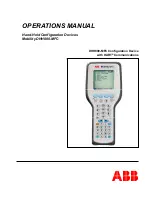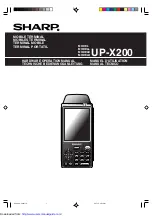
Page 238
Warranty and Other Product Information
Our method of protecting your rights has two steps: (1) copyright the library, and (2) offer you this license which
gives you legal permission to copy, distribute and/or modify the library.
Also, for each distributor's protection, we want to make certain that everyone understands that there is no warranty
for this free library. If the library is modified by someone else and passed on, we want its recipients to know that
what they have is not the original version, so that any problems introduced by others will not reflect on the original
authors' reputations.
Finally, any free program is threatened constantly by software patents. We wish to avoid the danger that companies
distributing free software will individually obtain patent licenses, thus in effect transforming the program into pro-
prietary software. To prevent this, we have made it clear that any patent must be licensed for everyone's free use
or not licensed at all.
Most GNU software, including some libraries, is covered by the ordinary GNU General Public License, which was
designed for utility programs. This license, the GNU Library General Public License, applies to certain designated
libraries. This license is quite different from the ordinary one; be sure to read it in full, and don't assume that anything
in it is the same as in the ordinary license.
The reason we have a separate public license for some libraries is that they blur the distinction we usually make
between modifying or adding to a program and simply using it. Linking a program with a library, without changing
the library, is in some sense simply using the library, and is analogous to running a utility program or application
program. However, in a textual and legal sense, the linked executable is a combined work, a derivative of the original
library, and the ordinary General Public License treats it as such.
Because of this blurred distinction, using the ordinary General Public License for libraries did not effectively promote
software sharing, because most developers did not use the libraries. We concluded that weaker conditions might
promote sharing better.
However, unrestricted linking of non-free programs would deprive the users of those programs of all benefit from
the free status of the libraries themselves. This Library General Public License is intended to permit developers of
non-free programs to use free libraries, while preserving your freedom as a user of such programs to change the
free libraries that are incorporated in them. (We have not seen how to achieve this as regards changes in header
files, but we have achieved it as regards changes in the actual functions of the Library.) The hope is that this will
lead to faster development of free libraries.
The precise terms and conditions for copying, distribution and modification follow. Pay close attention to the differ-
ence between a “work based on the library” and a “work that uses the library”. The former contains code derived
from the library, while the latter only works together with the library.
Note that it is possible for a library to be covered by the ordinary General Public License rather than by this special
one.
Terms and Conditions for Copying, Distribution and Modification
1.
This License Agreement applies to any software library which contains a notice placed by the copyright holder
or other authorized party saying it may be distributed under the terms of this Library General Public License
(also called “this License”). Each licensee is addressed as “you”.
A “library” means a collection of software functions and/or data prepared so as to be conveniently linked with
application programs (which use some of those functions and data) to form executables.
The “Library”, below, refers to any such software library or work which has been distributed under these terms.
A “work based on the Library” means either the Library or any derivative work under copyright law: that is to
say, a work containing the Library or a portion of it, either verbatim or with modifications and/or translated
straightforwardly into another language. (Hereinafter, translation is included without limitation in the term
“modification”.)
“Source code” for a work means the preferred form of the work for making modifications to it. For a library,
complete source code means all the source code for all modules it contains, plus any associated interface
definition files, plus the scripts used to control compilation and installation of the library.
Summary of Contents for Treo 90
Page 1: ...Treo 90 Handheld User Guide Windows Edition ...
Page 10: ...Page 10 Contents ...
Page 26: ...Page 26 Introduction to Your Treo 90 Handheld ...
Page 36: ...Page 36 Entering Data in Your Handheld ...
Page 52: ...Page 52 Managing Your Applications ...
Page 113: ...Chapter 6 Page 113 Options menu About To Do List Shows version information for To Do List ...
Page 136: ...Page 136 Application Specific Tasks ...
Page 156: ...Page 156 Setting Preferences for Your Handheld ...
Page 192: ...Page 192 Advanced HotSync Operations ...
Page 212: ...Page 212 Using the Wireless Application Suite ...
Page 234: ...Page 234 Non ASCII Characters for Login Scripts ...









































